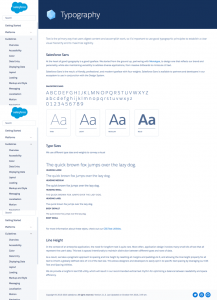Bluesky is ditching its waitlist and is now open to everyone
The Twitter alternative is no longer invitation-only.

Bluesky, the open-source Twitter alternative, is getting rid of its waitlist and opening its decentralized platform to everyone. The service, which opened in beta last spring, currently has a little over 3 million users, though that number could rise quickly now that prospective users don’t need an invitation to join.
It’s a significant moment for Bluesky, which began as an internal project at Jack Dorsey’s Twitter (Bluesky ended its association with the entity now known as X after Elon Musk’s takeover, though Dorsey is on Bluesky’s board.) The company is part of a growing movement for decentralized social media, which proponents say could address many of the shortcomings of centrally-controlled platforms like Facebook, X and TikTok.
“We really believe that the future of social is, and should be, open and decentralized,” Bluesky CEO Jay Graber tells Engadget. “This is something that we think is good for the public conversation overall.”
For those who missed Bluesky’s first hype cycle last spring, the service is functionally similar to X and Threads. Its posts — lovingly referred to by some early users as “skeets” — default to a chronological timeline, though users can also follow numerous other algorithmic feeds created by fellow users. Soon, the company will take a similar approach to content moderation, allowing third-parties to create their own “labeling services” for Bluesky content.
The service is still much smaller than most of its counterparts and doesn’t yet have a direct messaging feature. But it has become a haven for a number of once high-profile Twitter users and others looking for more Weird Twitter vibes and less Elon Musk.
Much like how Mastodon and other services in the fediverse are built on the ActivityPub protocol, Bluesky runs on its own open-source standard called AT Protocol.Right now, the only Bluesky is the version of the service created by Bluesky, the company. But that will soon change, as the company plans to start experimenting with federation, which will allow other developers and groups to create their own instances of Bluesky.
“The protocol is like an API that’s permanently open,” Graber says. “And that means that developer creativity can kind of go wild.”
Of course, the world of Twitter alternatives looks considerably different since Bluesky first launched. Meta’s Threads app has grown to 130 million users since last summer. Meta has also started to make some Threads posts available on Mastodon, the first step toward making it compatible with the rest of the fediverse.
But while Threads may be showing some support for open-source protocols, that’s not the same as decentralization, Graber argues. “If they integrate with ActivityPub, you would still be on a Facebook-owned app with this little window into a more open world, and it wouldn’t be as easy to leave. We hope that the AT Protocol universe lets people get in between different apps, different services a lot easier.”
(14)







